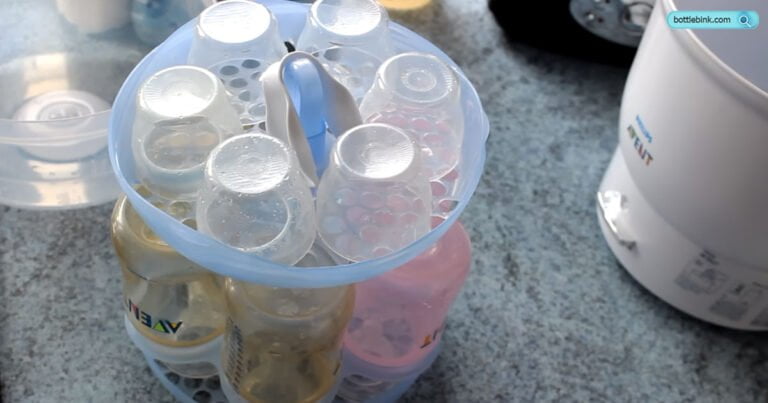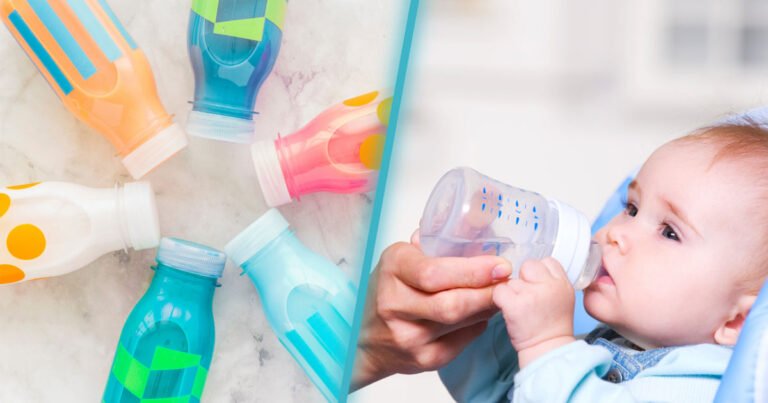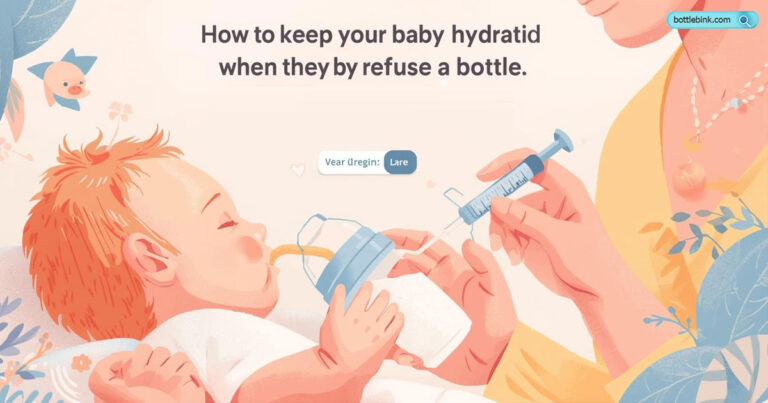When Should Babies Stop Using Bottles? Expert Tips & Timeline
Are you wondering when your baby should stop using bottles? It’s a question many parents face, and the answer isn’t always clear.
You want what’s best for your little one, but you also don’t want to rush or cause any feeding troubles. Understanding the right time to make this change can help your baby grow healthy and happy. Keep reading to discover simple signs to watch for and practical tips to make the transition smooth for both you and your baby.
Ideal Age To Wean Off Bottles
Knowing the right time to stop bottle feeding helps your baby grow healthy habits. Babies learn to drink from cups and eat solid foods as they grow. Transitioning away from bottles supports speech and dental health. It also reduces the risk of ear infections and tooth decay. Parents often wonder about the best age to start this change.
Pediatric Recommendations
Doctors suggest weaning off bottles by 12 to 18 months. This timeline helps avoid feeding problems later. Prolonged bottle use can cause problems with teeth and jaw development. Pediatricians advise switching to sippy cups or regular cups around one year. Early weaning supports better eating and drinking skills. It also encourages independence in toddlers.
Signs Baby Is Ready
Your baby shows readiness with clear signs. Sitting up steadily and holding a cup are good indicators. Babies who can chew soft foods are ready to stop bottles. Interest in drinking from cups instead of bottles also helps. Watch for fewer bottle demands and more curiosity about family meals. These signs mean it’s time to start the weaning process.

Credit: www.bespokefamily.co.uk
Risks Of Prolonged Bottle Use
Babies using bottles for too long can face several health problems. Prolonged bottle use affects more than just feeding habits. It can harm their teeth and nutrition. Understanding these risks helps parents make safer choices for their child’s growth.
Dental Health Concerns
Long-term bottle use can cause tooth decay. Milk or juice left in the mouth stays on teeth. This creates an environment for bacteria to grow. Bacteria produce acids that damage tooth enamel. Baby teeth can develop cavities early. Pain and infection may follow. Poor dental health affects speech and eating. Preventing decay means stopping bottle use on time.
Feeding And Nutrition Issues
Babies relying on bottles too long may refuse solid foods. This can delay important nutrition. Solid foods provide vitamins and minerals bottles lack. Prolonged bottle feeding can reduce appetite for healthy meals. It may cause poor growth or weight problems. Drinking from a cup encourages better eating habits. Switching from bottles supports balanced nutrition and development.
Transitioning To Cups
Transitioning from bottles to cups is an important step in a baby’s growth. It helps develop their drinking skills and encourages independence. This change should be smooth and gentle to avoid frustration for both baby and parents.
Introducing a cup early can help babies get used to new shapes and ways of drinking. The right cup and a clear plan make the process easier and more fun.
Choosing The Right Cup
Select a cup that fits your baby’s age and abilities. Look for cups with soft spouts or straws to protect delicate gums. Cups with handles help babies hold them better. Avoid cups that spill easily to reduce messes.
Start with a small cup that holds little liquid. Choose bright colors or fun designs to attract your baby’s attention. Cups made from safe, BPA-free materials are best.
Step-by-step Weaning Process
Begin by replacing one bottle feeding with a cup each day. Let your baby practice drinking small amounts from the cup. Offer water or milk, depending on the feeding schedule.
Watch your baby’s reactions and adjust the pace as needed. Gradually increase cup use and reduce bottle feedings. Be patient and celebrate small successes.
Encourage your baby to hold the cup and try drinking independently. This builds confidence and develops motor skills. Keep mealtime calm and positive to make the change easier.
Handling Challenges
Stopping bottle use can be a big change for babies and parents. Challenges often arise during this transition. Handling these challenges with patience helps make the process smoother. Understanding the common issues can prepare you better.
Dealing With Resistance
Babies may resist giving up their bottles. They find comfort in the familiar feel and routine. Try offering a favorite cup with fun designs. Let your baby hold and explore the new cup. Praise small attempts to use it. Keep calm and gentle. Forcing the change can create more stress. Offer distractions like toys or songs during feeding times. Gradual changes work better than sudden stops.
Managing Nighttime Bottle Habits
Nighttime bottles often become a habit hard to break. Babies use bottles to soothe themselves back to sleep. Replace the bottle with a cuddly toy or blanket. Dim lights and quiet sounds help calm your baby. Slowly reduce the milk amount in the bottle. This reduces dependence on milk for comfort. Stay consistent with the new routine. Night waking may increase temporarily but usually improves. Celebrate small wins to keep motivated.
Expert Tips For Smooth Weaning
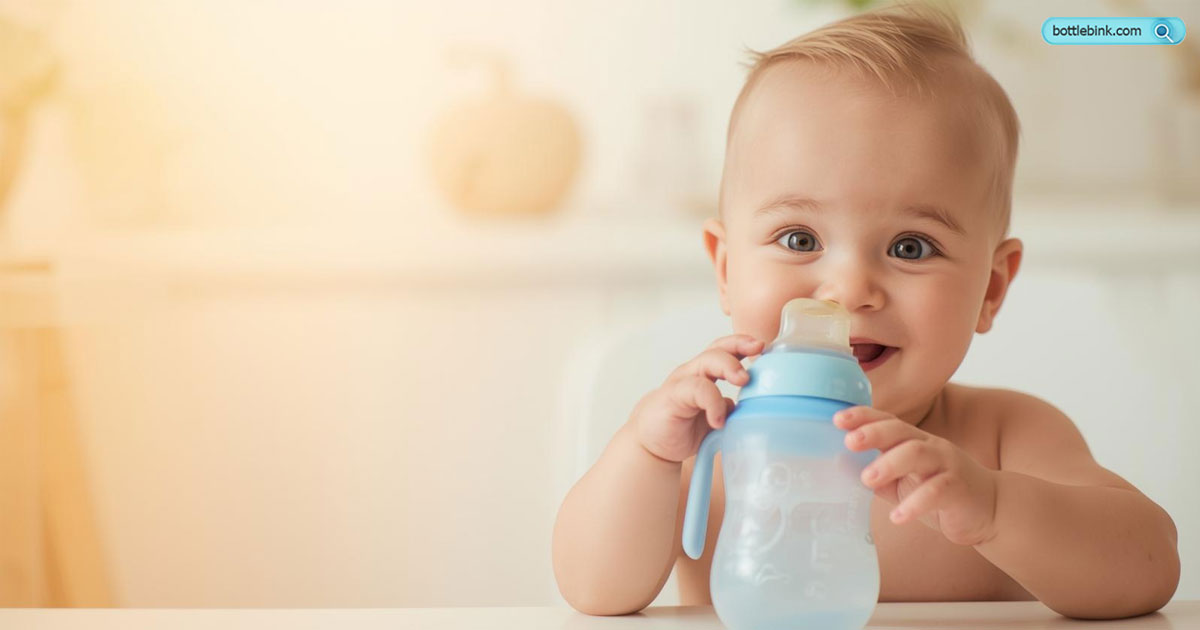
Weaning a baby off the bottle can be a big step for both parents and little ones. Experts suggest gentle methods to make this change easier. Smooth weaning helps your child adjust without stress. Patience and consistency play key roles during this time.
Positive Reinforcement Techniques
Praise your baby when they try using a cup. Smiles and claps can encourage good behavior. Offer small rewards like extra playtime or a favorite story. Avoid punishment if your baby resists. Positive words help build confidence and make the process fun.
Creating New Bedtime Routines
Replace the bottle with a calming activity. Try reading a book or singing softly. Use a soft blanket or favorite toy for comfort. Keep the routine consistent every night. This helps your baby feel safe and ready for sleep without the bottle.
Monitoring Baby’s Progress
Monitoring your baby’s progress helps decide the right time to stop bottle use. It shows how well your baby adapts to new feeding methods. This step is key to ensure healthy growth and development.
Watching changes in drinking habits and skills helps guide parents. Careful observation supports a smooth transition from bottle to cup. It also helps spot any feeding issues early.
Tracking Fluid Intake
Keep track of how much fluid your baby drinks daily. Note the amount from bottles, cups, and other sources. This helps ensure your baby stays well hydrated.
Gradually reduce bottle feeds and increase cup use. Watch if your baby accepts the cup easily or resists. Adjust the pace based on their comfort and intake.
Recognizing Developmental Milestones
Look for signs your baby can handle cup drinking. Sitting up steadily and using hands well are important milestones. These skills show readiness to move away from bottles.
Babies who can chew soft foods and show interest in self-feeding do well with cups. Observe if your baby imitates adults drinking from a cup. Such behaviors indicate growing independence.
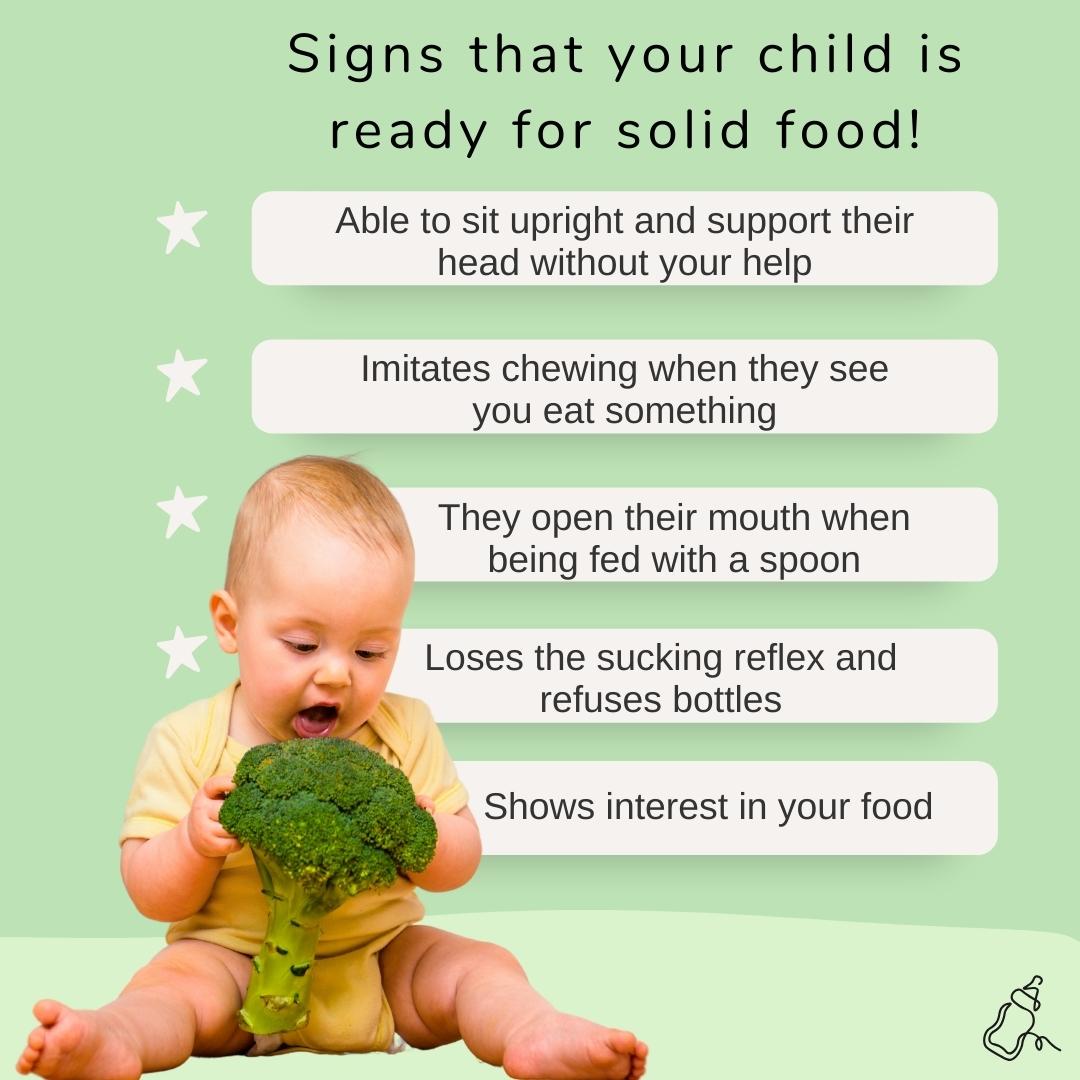
Credit: babymilkbar.com
Frequently Asked Questions
When Is The Ideal Age To Stop Bottle Feeding?
Babies should ideally stop bottle feeding between 12 and 18 months. This helps prevent tooth decay and encourages cup drinking skills. Transitioning early supports healthy eating habits and oral development.
Why Should Babies Stop Using Bottles After One Year?
After one year, prolonged bottle use can cause dental problems and affect speech. It may also reduce appetite for solid foods. Stopping bottle use promotes better nutrition and oral health.
How Can I Transition My Baby From Bottle To Cup?
Start offering a cup with meals around 6 months. Gradually replace bottle feedings with cup drinks. Be patient and consistent to help your baby adjust smoothly.
What Are The Risks Of Extended Bottle Use?
Extended bottle use increases risks of tooth decay, ear infections, and poor nutrition. It can also delay speech development. Limiting bottle use supports overall health and growth.
Conclusion
Babies usually stop using bottles around 12 to 18 months. This helps their teeth and speech develop well. Switching to a cup encourages good drinking habits. Parents should watch for signs their baby is ready. Gradual change makes the process easier for both.
Remember, every child grows at their own pace. Patience and gentle guidance work best here. Choosing the right time supports healthy growth and comfort. Keep your baby’s needs in mind while making this change.


